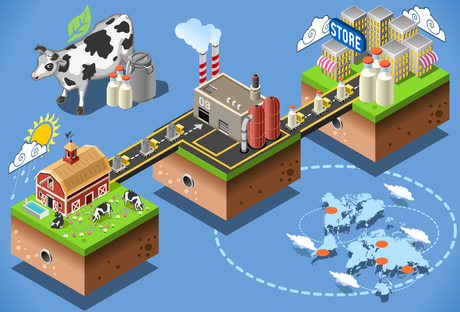Preserving brand reputation through best practice supply chain management

Your brand is your biggest asset. Protecting it from irreparable damage through exceptional supply chain controls is undoubtedly a given — or is it?
As Australia trades and sources extensively from low-cost countries, it takes much time and commitment to imbed Australian supply chain standards into low-cost supply partners. Crises such as the 2008 melamine contamination of China’s domestic dairy industry demonstrate just how quickly positive brand equity can come undone. The impact of that crisis left a permanent dent on the reputation of China’s food exports and to this day, consumer confidence in Chinese dairy products is extremely weak. Half of the Chinese baby formula market is dominated by foreign brands, and in some cities, the share is as high as 80%.
Thus mitigation of business risk is paramount. Brands must weigh the balance between cost and risk mitigation. The question of risk is one that should not be addressed lightly – have suppliers done enough due diligence to safeguard brand reputation? How much due diligence is enough?
Sourcing from low-cost countries — getting started
A proven low-risk approach for sourcing from low-cost countries is to partner with and invest in a few strategic suppliers. The early stages are critical and will involve identifying sound business partners, building a trusted working relationship and investing in the relationship.
Via audits, companies can assess the maturity of quality and management systems, environmental and government systems, as well as corporate responsibility compliance. It is vital for any brand to regard ethics as significantly as brand growth and sales.
Driving sustainable supplier relationships
A long-term, healthy and mutually valuable relationship requires considerable investment of time from both parties. In engaging a partner, companies and brands should seek to understand supplier growth strategies and vision.
Understanding and sharing cost drivers, sharing short- and long-term plans and openly discussing concerns with frequent review meetings are positive ways to instil two-way trust. The recurrent dialogue to audit financial stability, quality systems, maintenance and process controls will help to create confidence and build a stable and lasting partnership.
Managing offshore sourcing requires rigorous controls
When purchasing packaging from low-cost countries, it is essential to implement inline testing processes as the first measure of conformance.
In order to safeguard their brand and maintain optimal brand quality, companies should implement their own business management protocols into their supply partners. The standards and expectations of the business should systematically apply not just to the suppliers but all providers down the chain.
Full second party positive release is another strict measure Sealed Air deploys to mitigate risks to safeguard brand reputation. All products deemed conforming during the first phase of testing are reassessed in a Sealed Air laboratory. This process not only confirms quality conformance, but serves to keep operations efficient by avoiding stock shortages which can surface if a product is found to be non-conforming after having spent several weeks in sea freight.
And because consumer safety is paramount, Sealed Air’s 75-year Cryovac brand demands food safety controls. These controls require full disclosure of every single ingredient of every additive in a material. The United States Food and Drug Administration and European Union approvals are required on all ingredients for their intended purpose such as microwave, retort and freezer applications. Open communication with supply partners is crucial for this supply model to succeed.
By partnering and investing with a few trusted strategic suppliers and introducing rigorous controls, the company can rest assured that the risk of a crisis is minimised. However, planning for an unlikely crisis makes good business sense. Fully transparent and cohesive supplier relationships will ensure there is proper crisis management and communication protocols in place to curtail the impact, both on your brand and the communities you serve.

Irish drinks manufacturer takes its supply chain to the next level
A stainless steel vertical conveyor system has been incorporated into the final packaging process...
Voice technology used to transform cold storage operations
Dematic has implemented its Voice solution with gamified workflow features at two Australian...
Rock lobster exporter improves supply chain efficiency
Transport technology provider Microlise partners with rock lobster exporter in Western Australia...











